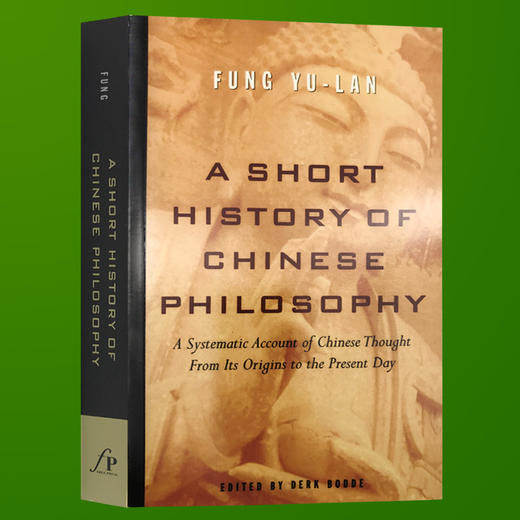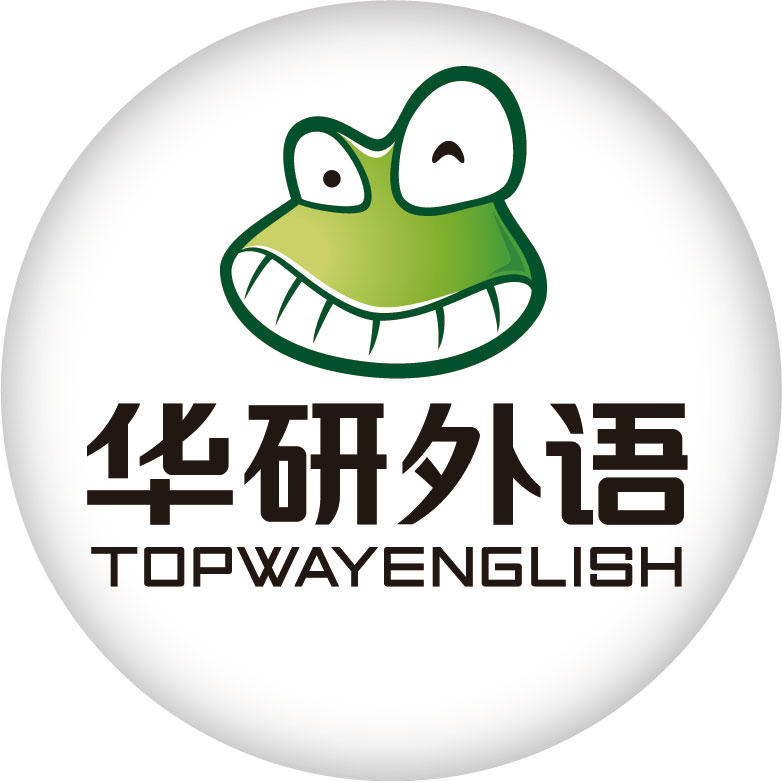冯友兰 中国哲学简史 英文原版 A Short History of Chinese Philosophy 现代新儒家 Yu-lan Fung 英文版中国哲学入门书籍 进口书
| 运费: | ¥ 0.00-999.00 |
| 库存: | 72 件 |
商品详情
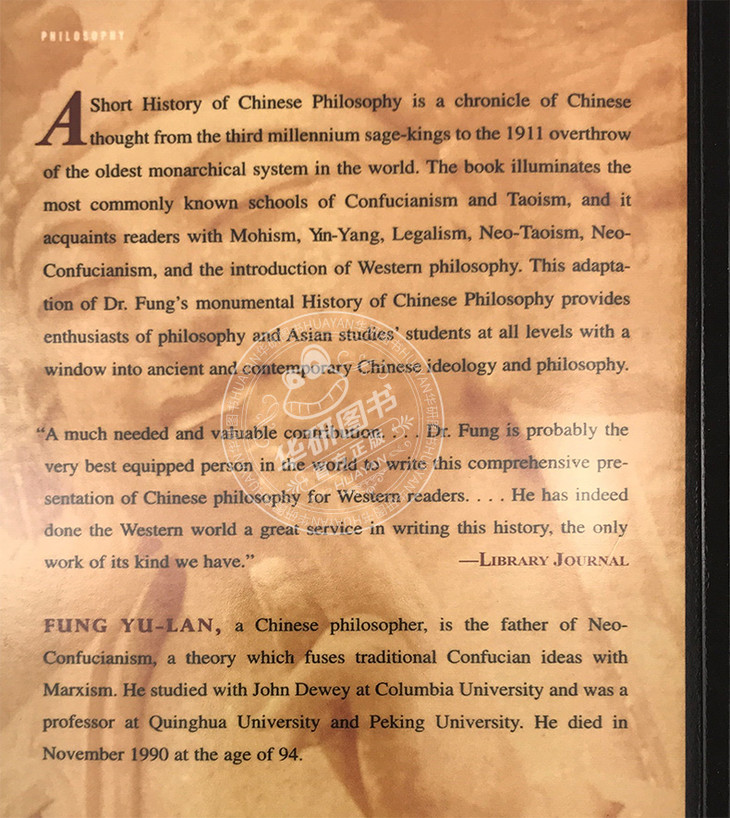
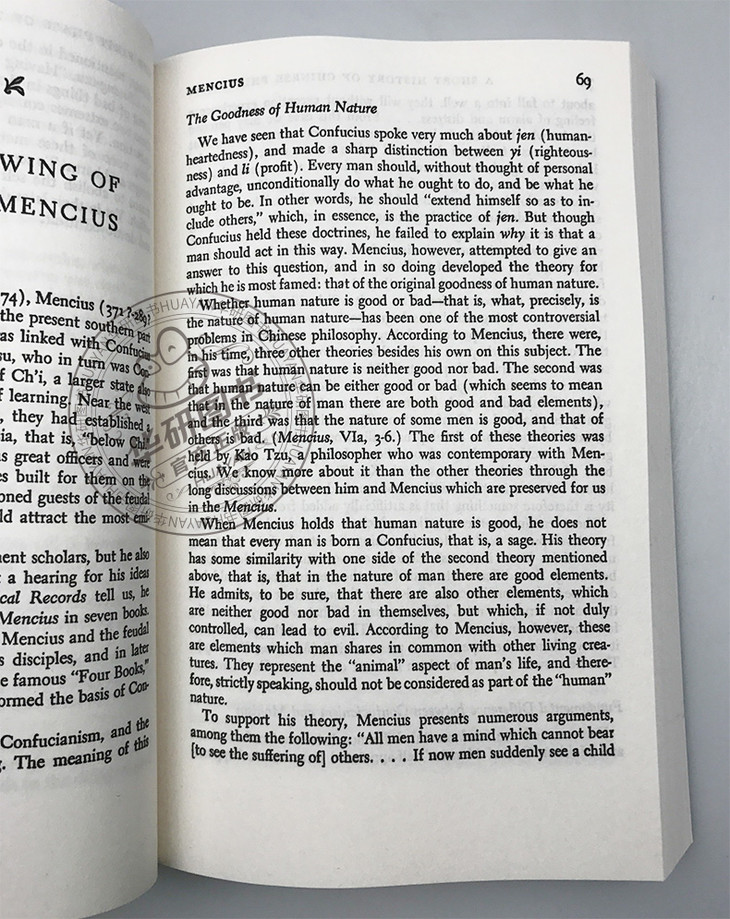
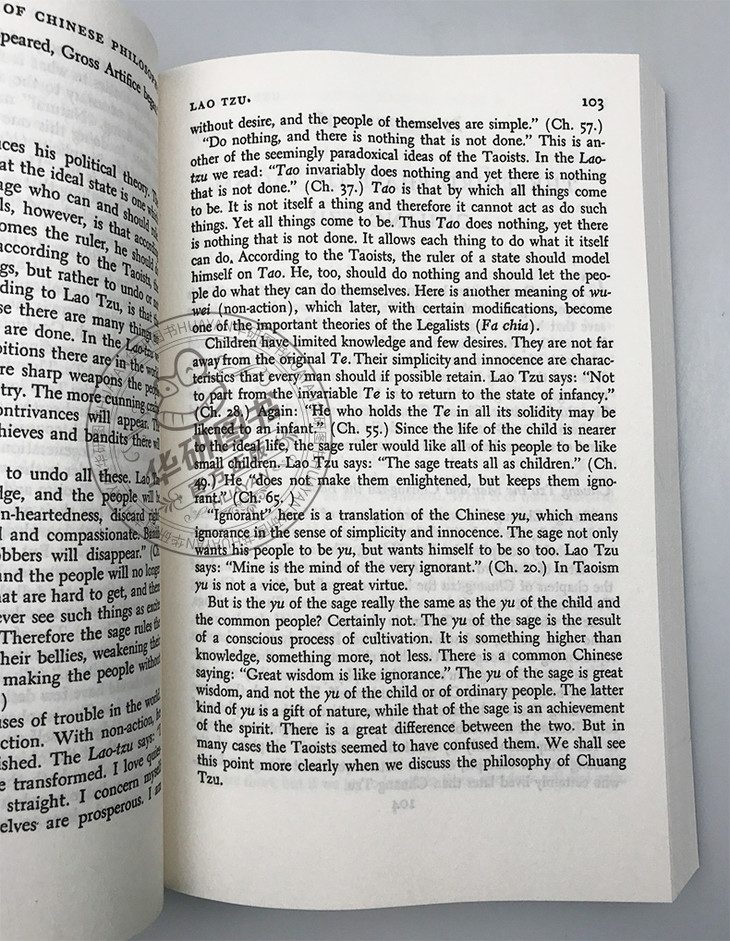
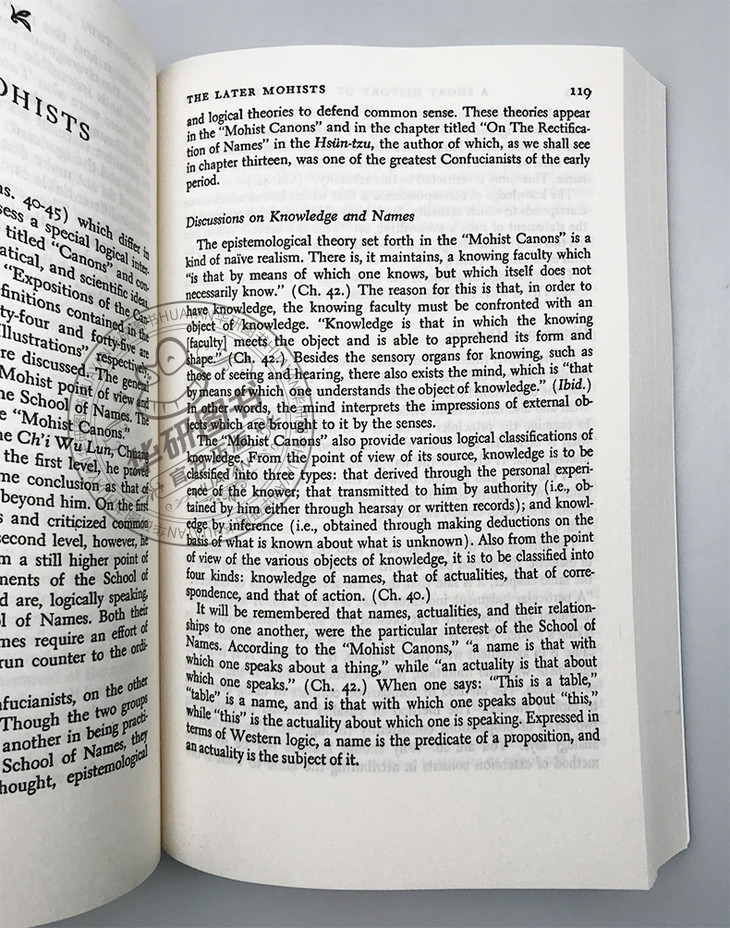
 书名:A Short History of Chinese Philosophy中国哲学简史
书名:A Short History of Chinese Philosophy中国哲学简史
作者:Yu-lan Fung
出版社名称:Free Press
出版时间:1997
语种:英文
ISBN:9780684836348
商品尺寸:13.8 x 2.5 x 21 cm
包装:平装
页数:400
 ★《中国哲学简史》被誉为东方的“圣经”,让中国人反思当下,找到人生之根。
★《中国哲学简史》被誉为东方的“圣经”,让中国人反思当下,找到人生之根。
★蕴含着正直、坚强的人类道义和战胜这个混乱世界的智慧和教诲。
★指引人生,充满洞见,了解中国哲学与中国文化“不得不读”的书籍。
★在世界各地共有30多种译本,再版20余次,享誉中海内外!
冯友兰是中国当代著名的哲学家、教育家,他的著作《中国哲学简史》、《贞元六书》等已成为20世纪中国学术的重要经典,对中国现当代学界乃至国外学界影响深远,被誉为“现代新儒家”。
本书A Short History of Chinese Philosophy《中国哲学简史》是冯友兰先生于1947年在美国宾夕法尼亚大学受聘担任讲座教授,在讲授中国哲学史的过程中,其英文讲稿后经整理而成的作品。此书一出,立即成为西方人了解和学习中国哲学的超级入门书;其后又有法文、意大利文、西班牙文、南斯拉夫文、日文等译本出版。五十多年来,它一直是世界各大学“中国哲学”的通用教材,在西方影响很大。
The classic chronicle of Chinese philosophical thought from the third millennium to the 20th century.
From the sage-kings of ancient China to the 1911 overthrow of the oldest monarchical system in the world, Chinese philosophy has evolved and influenced schools of thought around the world. In an accessible voice, A Short History of Chinese Philosophy clearly illuminates Confucianism, Taoism, Mohism, Yin-Yang, and more. For those interested in philosophy or Asian studies, this is the perfect window into ancient and modern Chinese ideology.

A Short History of Chinese Philosophy《中国哲学简史》打通了古今中外的相关知识,以宏观开阔的视野对中国哲学进行了深入浅出、融会贯通的讲解;在有限的篇幅里融入了冯友兰对中国哲学的理解,是史与思的结晶,充满了人生的睿智与哲人的洞见,寄托着对现实的人文关怀。
本书是广大读者学习中国古典文化、借鉴中国传统智慧、启迪现实人生的入门书,也是一部名副其实的、可以影响大众一生的文化经典!
 冯友兰(1895—1990),字芝生,河南唐河人。哲学家、哲学史家;曾就学于北京大学、哥伦比亚大学,获哥伦比亚大学哲学博士学位。1928年起,任清华大学哲学系教授兼哲学系主任、文学院院长、校务会议主席,抗战期间任西南联大哲学系主任兼文学院院长。1952年起任北京大学哲学系教授,为中国科学院哲学社会科学学部委员。其主要著作有《中国哲学史》、《新理学》、《新事论》、《新世训》、《新原人》、《新原道》、《新知言》等。
冯友兰(1895—1990),字芝生,河南唐河人。哲学家、哲学史家;曾就学于北京大学、哥伦比亚大学,获哥伦比亚大学哲学博士学位。1928年起,任清华大学哲学系教授兼哲学系主任、文学院院长、校务会议主席,抗战期间任西南联大哲学系主任兼文学院院长。1952年起任北京大学哲学系教授,为中国科学院哲学社会科学学部委员。其主要著作有《中国哲学史》、《新理学》、《新事论》、《新世训》、《新原人》、《新原道》、《新知言》等。
Responsible for reintroduing the study of Chinese philosophy in the 20th century,Feng Yu-lan is considered the father of Neo-Confucianism. He studied at Columbia University and taught at Quinghua University and Peking University. He died in 1990.
 To the Westerner, who sees that the life of the Chinese people is permeated with Confucianism, it appears that Confucianism is a religion. As a matter of fact, however, Confucianism is no more a religion than, say, Platonism or Aristotelianism. It is true that the Four Books have been the Bible of the Chinese people, but in the Four Books there is no story of creation, and no mention of a heaven or hell.
To the Westerner, who sees that the life of the Chinese people is permeated with Confucianism, it appears that Confucianism is a religion. As a matter of fact, however, Confucianism is no more a religion than, say, Platonism or Aristotelianism. It is true that the Four Books have been the Bible of the Chinese people, but in the Four Books there is no story of creation, and no mention of a heaven or hell.
Of course, the terms philosophy and religion are both ambiguous. Philosophy and religion may have entirely different meanings for differentpeople. When men talk about philosophy or religion, they may have quite different ideas in their minds concerning them. For my part, what I call philosophy is systematic, reflective thinking on life. Ever3’ man, who has not yet died, is in life. But there are not many who think reflectively on life, and still fewer whose reflective thinking is systematic. A philosopher must philosophize; that is to say, he must think reflectively on life, and then express his thoughts systematically.
This kind of thinking is called reflective because it takes life as its object. The theory of life, the theory of the universe, and the theory of knowledge all emerge from this type of thinking. The theory of the universe arises because the universe is the background of life—the stage on which the drama of life takes place. The theory of knowledge emerges because thinking is itself knowledge. According to some philosophers of the West, in order to think, we must first find out what we can think; that is to say, before we start to think about life, we must first “think our thinking.”
Such theories are all the products of reflective thinking. The very concept of life, the very concept of the universe, and the very concept of knowledge are also the products of reflective thinking. No matter whether we think about life or whether we talk about it, we are all in the midst of it. And no matter whether we think or speak about the universe, we are all a part of it. Now, what the philosophers call the universe is not the same as what the physicists have in mind when they refer to it. What the philosophers call the universe is the totality of all that is. It is equivalent to what the ancient Chinese philosopher, Hui Shih, called “The Great One,” which is defined as “that which has nothing beyond.” So everyone and everything must be considered part of the universe. When one thinks about the universe, one is thinking reflectively.
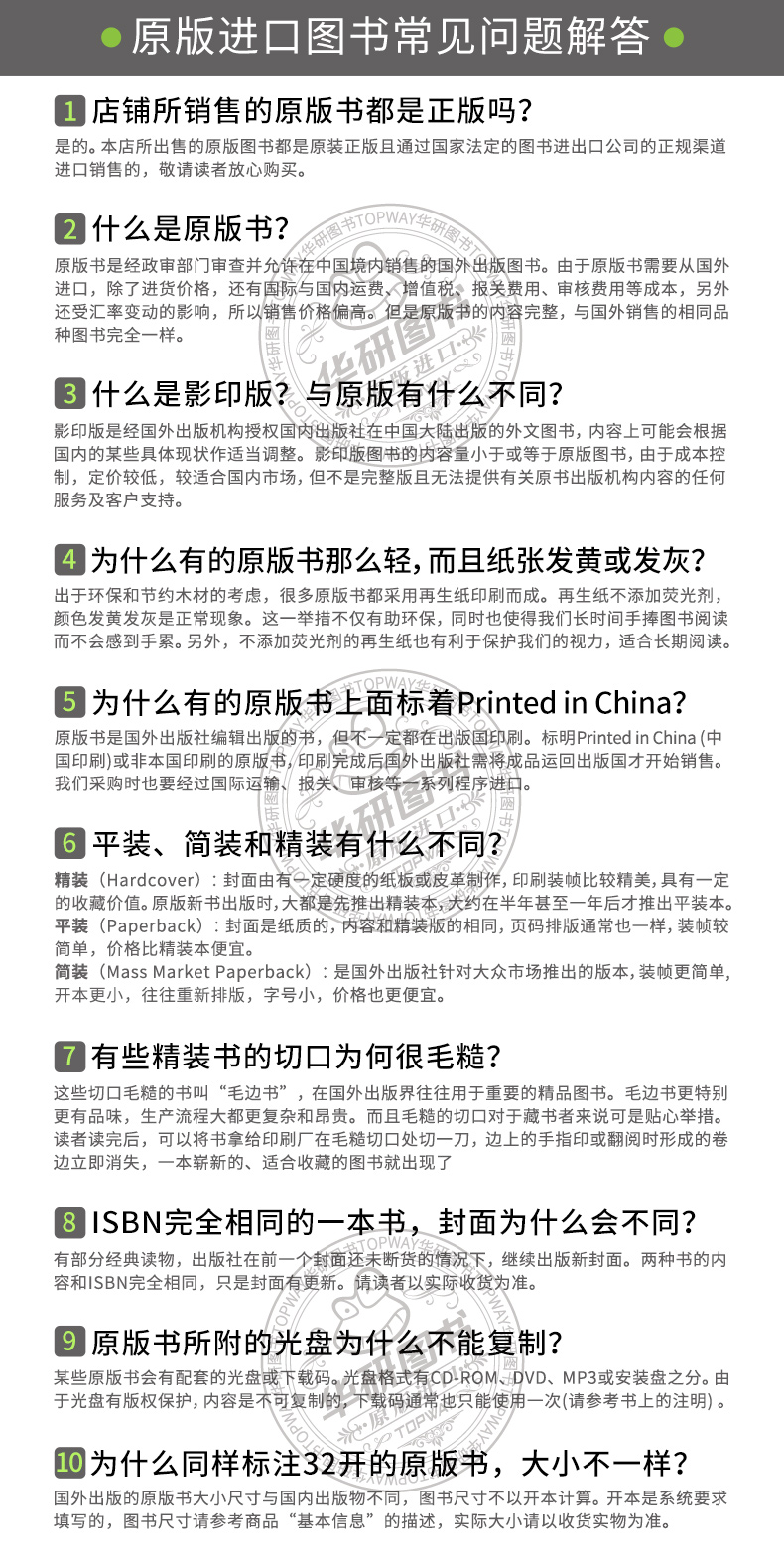
- 华研外语 (微信公众号认证)
- 本店是“华研外语”品牌商自营店,全国所有“华研外语”、“华研教育”品牌图书都是我司出版发行的,本店为华研官方源头出货,所有图书均为正规正版,拥有实惠与正版的保障!!!
- 扫描二维码,访问我们的微信店铺
- 随时随地的购物、客服咨询、查询订单和物流...
